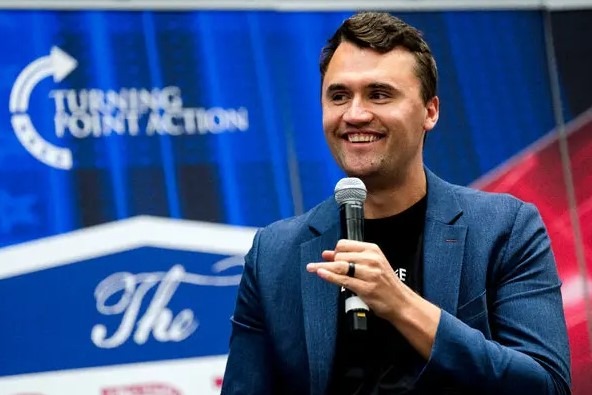
Shocking Loss: The Life and Work of Charlie Kirk
The political landscape has been shaken following the recent tragic death of Charlie Kirk, a prominent conservative activist, known for his advocacy of free speech and willingness to debate in a rational manner on college campuses. At just 31 years old, Kirk was assassinated during a public event at Utah Valley University while launching his nationwide "American Comeback Tour." This shocking incident has not only stunned his supporters but has also ignited a broader conversation about political safety and rhetoric in America today.
His Rise to Prominence
Charlie Kirk’s initial foray into political activism began with the founding of Turning Point USA in 2012, aimed at engaging young conservatives in politics. At a time when the liberal narrative often dominated university settings, Kirk and his organization carved a niche in the conservative movement, propelling a new generation of activists forward. His work remained heavily aligned with the policies of former President Donald Trump, and he garnered significant attention and discussion for his stances on various social issues, often courting controversy.
The Impact of Societal Division
Kirk's death raises critical questions about the current cultural and political climate in the United States. In an era characterized by pronounced division, incidents of violence, particularly in political contexts, have surged. The atmosphere surrounding elections, especially with the upcoming 2024 presidential race, has bred partisanship and animosity that can lead to tragic outcomes like the one observed in Kirk's demise. Discussion surrounding gun laws in America, political rhetoric, and the influence of social media on real-world actions are more important than ever.
Turning Point USA: A Legacy of Engagement
Turning Point USA, under Kirk's leadership, evolved from a small organization into a vital political force that has mobilized grassroots efforts across the country. With over 250,000 student members, their events integrate lively marketing tactics that resonate with young people. Kirk’s strategies not only highlighted pressing political issues but also served to strengthen a base that seeks representation in a seemingly polarized society.
Reactions from Political Figures and the Public
In the wake of Kirk's tragic passing, statements of condolence poured in from various political figures, including Pres. Trump, who described Kirk as a "tremendous person" and a good friend. The collective mourning articulated by supporters underscores the significant vacuum left in right-wing activism. Kirk's methods and outspoken demeanor appealed to many young people who felt disenfranchised within traditional political frameworks.
Future Implications: A Call for Change
The aftermath of this incident could signal a turning point in how political events are conducted and perceived. The need for dialogue surrounding safety at political gatherings and the overarching narratives attributed to political leaders and their followers remains crucial. As society reflects on this unfortunate event, engaging in constructive conversations about public safety, political polarization, and how to mitigate violence in political discourse will be imperative.
In Conclusion
Charlie Kirk's life and legacy underscore the intense and often fraught relationship between politics and public safety in the modern era. As discussions evolve on gun laws in America and the implications of politically charged rhetoric, it is vital for both supporters and opponents of his views to seek common ground—a shared quest for a more secure and united political landscape. The events that transpired at Utah Valley University serve as a somber reminder of the responsibilities borne by all stakeholders in protecting democratic freedom and civility.
Engaging in these conversations is not merely an option but a necessity in light of current events in America. In memory of Kirk and to foster a safer political climate for all, it is time to advocate for solutions rooted in dialogue, understanding, and, ultimately, change.
 Add Element
Add Element  Add Row
Add Row 



Write A Comment